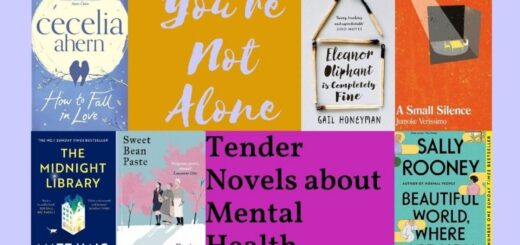Mental Health & Study Tips for Students from Students

For South African students, the academic year is drawing to a close and this means final exams. Sho! Naturally, this is a very stressful time and hard on the student’s mental health. Thus, mental health and study tips for students are needed now more than ever.
I asked various students how they deal with these stressful times and to share their mental health and study tips with their fellow students.
What Are Your Mental Health Tips for Your Fellow Students?
Laura Venter
graphic design alumnus of the North West University (NWU)
My mental health tip would be to look after yourself physically. Make sure you shower regularly, make sure you eat enough healthy food and I cannot stress this enough, get enough sleep. I’m not the most mentally conscious person ever so knowing that there are physical ways to help gave me control over my mental state.
My to-do list is always overflowing, so it’s easy to get overwhelmed by the number of tasks that still need to get done. Tackling only the most important and urgent tasks first helps not become overwhelmed.
Niné Jansen van Vuuren
third-year accounting student at NWU
Cabrin Redelinghuys
third-year Law student at NWU
You should always start your preparations in advance if possible. This allows me to focus on memorisation, rather than scrambling shortly before the time to get notes done.
I have learned that the signs of burnout, such as emotional outbursts and physical illness, are often things we ignore — especially when we are pursuing a degree, and we fear being seen as weak by an imaginary audience. However, when I ignored it, I let the problem grow and run rampant, but when I acknowledged it I took control back and helped my mental health recover. So, learn the signs and keep an eye open for them, so you can intervene earlier rather than later.
It’s also good to familiarise yourself with the student health centre which normally gives free or affordable health checks, and psychology sessions. I went to a psychologist to help with anxiety, as well as a nurse who helped with vitamin deficiencies. In my third year I was feeling very burnt out and a psychologist was the first person who validated that I’m feeling burnt out, and she helped me create an action plan for recovery. It’s not a weakness to ask for professional help, it shows your desire to feel and do better.
Enette Venter
Psychology and creative arts graduate
Nadia van der Merwe
Psychology graduate currently finishing her honours in anthropology
Be kind to yourself. I know this is very common advice but learning to hold myself kindly has helped me get through some of my hardest times.
These study tips give me room to be a human with needs, and they acknowledge that I will not always be able to give 100%. Life will always get in the way. We cannot pretend not to be human, but we can accommodate our humanity in the kindest ways possible.
Find what time works for you and capitalise on it. When do you get your best writing done? Use this knowledge to your advantage. Not everyone can be a morning person, and there’s no shame in that. If you do your best work at night, don’t feel pressured to write at 9 in the morning when the work you produce will not be your best.
How Do You Cope with Exam Stress?
Laura Venter
graphic design alumnus of the North West University (NWU)
I would say again, look after yourself physically: proteins and omega-3 help for brain capacity and sleep helps for memory recall.
Study with a friend or have a study buddy because hearing information helps to lodge that information into both your brains.
Niné Jansen van Vuuren
third-year accounting student at NWU
Cabrin Redelinghuys
third-year Law student at NWU
My study tip for students is to take breaks. Studying is important but so is your mental health. You can’t pass if you’re burnt out.
Make use of the campus library as a study space. This way you don’t work as much in your room which will lead to better sleep and less procrastination.
Enette Venter
Psychology and creative arts graduate
Nadia van der Merwe
Psychology graduate currently finishing her honours in anthropology
If you’ve studied something today, look over it again tomorrow, and then again a week from now. You’ll retain that information forever. Set up a little document to organise this revision better if you want.
If you sit for an hour, please get up and do a stretch, make some tea, or eat a fruit after that hour. If you sit at a desk for over an hour at a time you can seriously hurt your back, and also you use up your willpower for tomorrow.
What Are Your Exam-specific Study Tips for Students?
Laura Venter
graphic design alumnus of the North West University (NWU)
I would say prioritise what needs to be done. Exams are normally the last stretch and the most difficult part of the year to get through. Let things slip. So if you haven’t seen a friend for a while, that’s fine; they can wait three weeks.
You should have a study plan and stick to it. If your study plan is overwhelming, you’re less likely to use it, so scale down the workload if needs be and focus only on the most important work.
Niné Jansen van Vuuren
third-year accounting student at NWU
Cabrin Redelinghuys
third-year Law student at NWU
Try to stay calm. Go through past papers. Get sleep and learn to apply rather than memorise. You can quote theory with applied knowledge, but you can’t apply theory with only memorised knowledge.
Study one subject at a time. This is psychologically proven to be the best way to study. When you study, use active recall methods. It’s any study method that requires you to remember what you just learned over and over again. Some examples are flashcards, past papers, and explaining the topic to a friend.
Ask your lecturer how the marks for your test will work. Some modules have you lose marks for extra writing while others give marks based on any points you manage to make.
Enette Venter
Psychology and creative arts graduate
Nadia van der Merwe
Psychology graduate currently finishing her honours in anthropology
Have empathy for your future self as you prepare for exams. If you feel like you don’t have to revise until two days before the big test, reconsider. Your future self will likely be stressed beyond measure if you expect this sort of hardcore revision from them, rather aim to do a little bit every day. Avoid last-minute cramming as much as possible. The night before your exam should be for sleep and maybe some light revision.
Before you write your exam, make sure you are well-rested and have eaten something for energy. Take two pens, if not for yourself, then for your classmate who forgot theirs.

Which Study Tips for Students Will You Try?
Every person is different and thus studies differently. But one thing these students make clear is that it’s not all about the actual studying — you also need to look after your physical and mental health!
One way of integrating these priorities is to have a healthy routine. I wish I’d known how when I was a student. So, my advice to you is to read through these tips carefully and try the ones that you think fit you best and will benefit you best.
Good luck!


